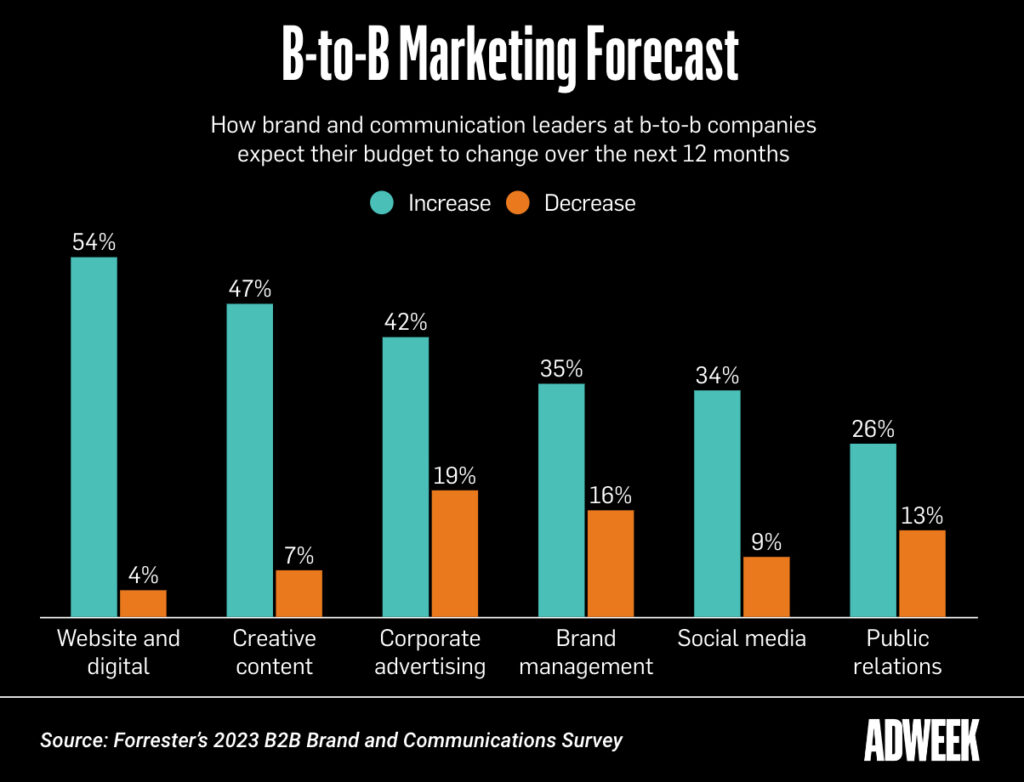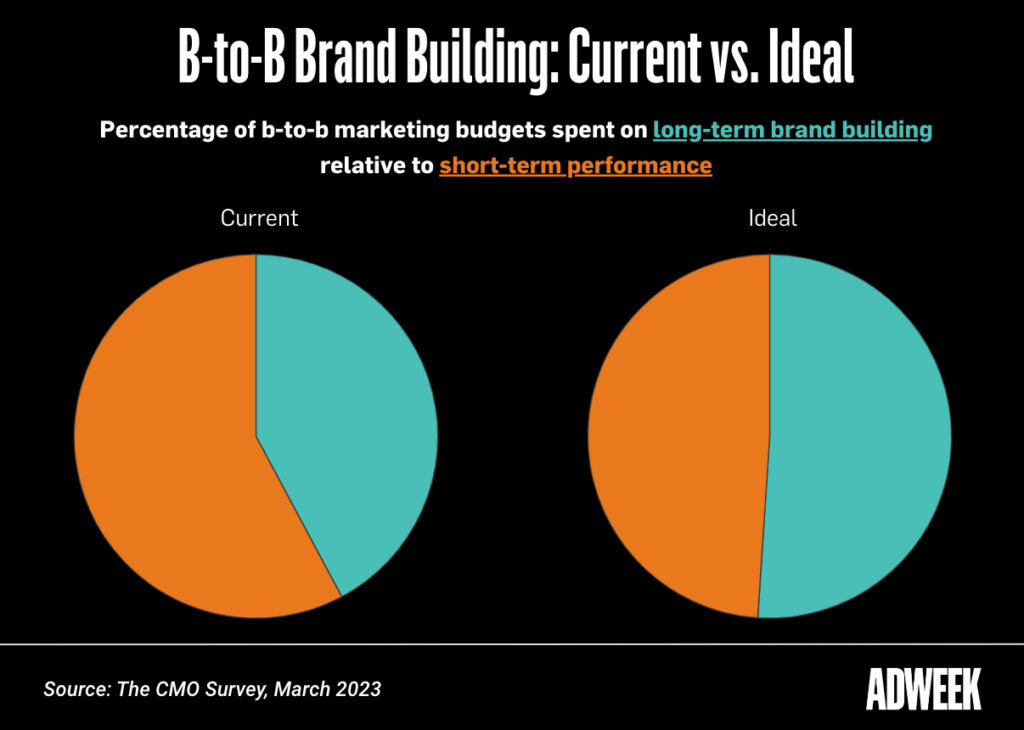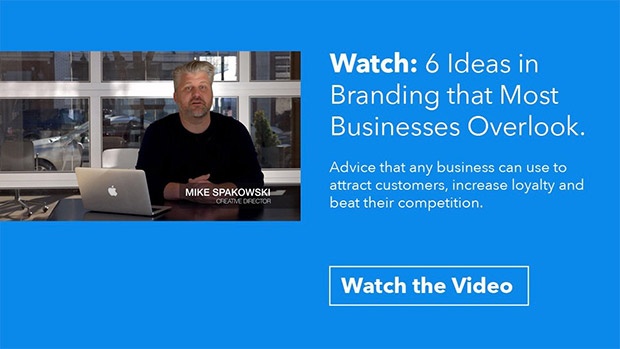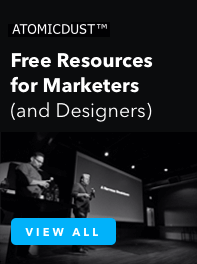What the B2B Marketing Renaissance Means for Your Brand
B2B marketing is entering a renaissance era.
And it’s not just us saying that. A recent article in AdWeek interviewed B2B marketing leaders across industries and spotlighted a growing trend: business-to-business brands are focusing not only on short-term performance marketing, but on brand building and brand marketing for holistic company growth.
What’s ahead? Exciting creative, new-to-B2B mediums, and tactics designed to strengthen brand reputation and relationships.
That’s a significant contrast from the traditional marketing playbooks of most B2B brands, which have traditionally focused on sales and lead generation over brand marketing and brand building. But that’s no longer the case.

Image from AdWeek
A 2023 survey by Forrester found that B2B companies expect to invest more in brand-related efforts like creative content, brand management, websites and digital channels.
And studies suggest there are more changes to come.
Brand Building and Brand Marketing in 2023
March 2023 data from The CMO Survey showed that B2B marketers currently dedicate more of their budget to short-term performance tactics but would ideally prefer an even split between long-term brand building efforts and short-term tactics.

Image from AdWeek
As one article source said, the pendulum is swinging from performance to brand marketing, but not quickly enough.
So… why the shift? Why are B2B business leaders and marketers adjusting their focus?
We can think of a few reasons.
Blurred Buyer Lines
B2B marketers have traditionally used limiting demographics and buyer personas to understand their audiences, addressing them only as professionals and employees. But brands are waking up to the fact that buyers aren’t just their job titles or specific pain points. They’re human.
(Or, as Partner/Creative Director Mike Spakowski wrote over a decade ago, businesses are people, too.)
While B2B buyers make decisions as business leaders and professionals, they’re still influenced heavily by things like human emotion and storytelling, just like B2C buyers.
Branding (and brand building) gives companies a way to connect with audiences on an emotional level—nurturing relationships with B2B buyers in a way that performance marketing can’t always achieve. Through long sales cycles, technical industries and in oversaturated markets, brand building gives companies a competitive edge: meaning.
And, as the AdWeek article points out, changing consumer expectations (B2B buyers are still consumers, after all) are holding B2B brands to higher standards, forcing companies to communicate their efforts around things like DEI (diversity, equity and inclusion) and climate change.
The AI Evolution
Artificial intelligence is leveling the marketing playing field.
ChatGPT and other tools are allowing companies to do more with less. But at the same time, the output from AI tools is homogenized. B2B brands have fewer barriers to entry to create more messaging and compete on more channels—even if what they’re creating is the same as what other brands are.
The result: a hell of a lot more noise.
Human creativity, breakthrough ideas, building reputation and fostering brand trust have never been more important.
And B2B brands are taking notice.
The Battle for Recruitment and Retention
Brand perception is just as impactful on internal teams as it is for external audiences. In a competitive labor market where B2B brands struggle to recruit and retain employees, a strong brand with clear brand values can have a sizeable impact.
The AdWeek article reports that a fifth of the U.S. workers who are considering leaving their current role are doing so because their company’s values don’t align with their own.
If CMOs and Marketing Managers aren’t already planning to invest in brand building efforts, their counterparts in HR might be pleading their case for it soon.
The Case for B2B Brand Marketing
Whatever portion of their marketing budget B2B companies allocate to brand building efforts, the spend is worth it.
Brand marketing supports everything from brand recognition to brand loyalty. Robust branding establishes differentiation in crowded markets and increases perceived value.
While it’s often difficult to directly attribute leads and sales to brand marketing, research from McKinsey & Company shows that B2B companies with strong brands outperform competitors by up to 20% in shareholder returns.
If your company has been focusing solely (or primarily) on performance marketing tactics and leaving brand building and brand perception up to chance, now’s the time to reevaluate. Of course, we’re not recommending abandoning your existing digital marketing efforts—performance marketing should still be an important part of your approach. But as more B2B companies invest in their brand, having a weak brand could lead to decreased lead gen, lost sales, lower customer loyalty and weaker overall business performance.
Despite its potential, brand marketing has been an underutilized focus in B2B industries for too long.
But remember, we’re in a renaissance.
Things are changing.



